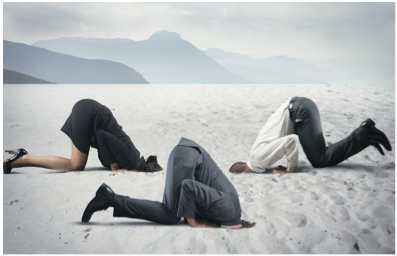CommentsBELL VIEW--Many years ago, I sat drinking a beer on the steps of an old wooden house in Canaryville – a white working-class neighborhood on the South Side of Chicago – with my friend Tommy, an Irish singer and guitar player who could fill a bar with his voice without the benefit of a microphone. Tommy, who would later be killed by a drunk driver, was one of the great ones: a singer, a fighter, a family man, a decent all-around person. As quick as he could be with his fists, at his core he was gentle and soft-spoken. He ran a thrift shop for the children’s hospital.
As we sat on the steps drinking our beers, Tommy, out of nowhere, looks at me and says “You know, the Jews really need to shut up about the Holocaust already.”
Umm … ok, I thought. Unlike Tommy – who had probably never met a Jewish person in his life – I had Jewish friends and associates. So, I said “What do you mean?” According to Tommy, a lot of other people died in the Holocaust in addition to Jews – Poles, Russians, Catholics. There was no reason Tommy could see why the Jews should basically own the Holocaust. He wasn’t denying it happened; he was just negating the Jewishness of it.
I said “Ok, but, I gotta tell you, I have a lot of Jewish friends, and everyone I know has lost family in the Holocaust. That’s got to mean something.” Tommy supposed I was right, and the conversation drifted off in another direction.
That was a fairly typical interaction for me growing up. People I liked and respected would regularly say things that would make Jeff Sessions blush. I would try, in my way, to plant seeds of opposition – but walking out in a huff every time somebody said something racist or sexist or otherwise horrific was really not in the cards. Eventually, I moved away – first to the North Side of Chicago and eventually to Los Angeles.
But even though I moved away, social media has brought many of these people back into my world. As such, I have a unique set of “friends” that spans a wide political spectrum. Donald Trump came close to winning the part of Canaryville where Tommy and I shared a beer – and, in Mt. Greenwood, where most of my old friends lived and many still do – Trump took 70% of the vote.
These past few years have been tough on these “friendships.” Quite a few have unfriended me. But for years – prior to 2016 – I believed I could change people’s minds by finding commonalities. Racism, xenophobia, misogyny – these need to be opposed directly. No longer confined to living rooms and front porches – where politeness needs to be maintained – I could attack the ugly racism that exists in my cross-section of White America with everything I had. Minds weren’t changed, but I said my piece.
But on other issues: climate change, gun control, immigration, I felt I could inch people in the direction of agreement by letting go of zero-sum arguments. Take climate change. It’s easy to claim that climate-change deniers are “ignoring science,” but that’s only partially true.
Skepticism is built into science. When I tell people that I am a climate-change skeptic, I am embracing the science. Science is rarely settled. If we can get to the common ground that the science is unsettled, the next question is what should we do with the science we have? If, in the history of humankind, we never acted on anything until the science was absolutely settled, we’d still be sacrificing goats to the rain gods. Surely – I argued – even when all we have is imperfect, unsettled human science – we should act with caution when faced with an existential threat to our survival on the planet.
But something has changed. The common ground is shifting beneath our feet. Both sides are screaming the same arguments at each other. Both sides claim the other is ignoring science. Both sides think the other side are idiots. I don’t mean to imply both sides are equally wrong. The other side is wrong and we are right. But what good does that do us? I can see the humanity in my political enemies. I’ve been doing it my whole life. I’m just starting to lose faith that I can ever reach that humanity.
(David Bell is a writer, attorney, former president of the East Hollywood Neighborhood Council and writes for CityWatch.)
-cw
















